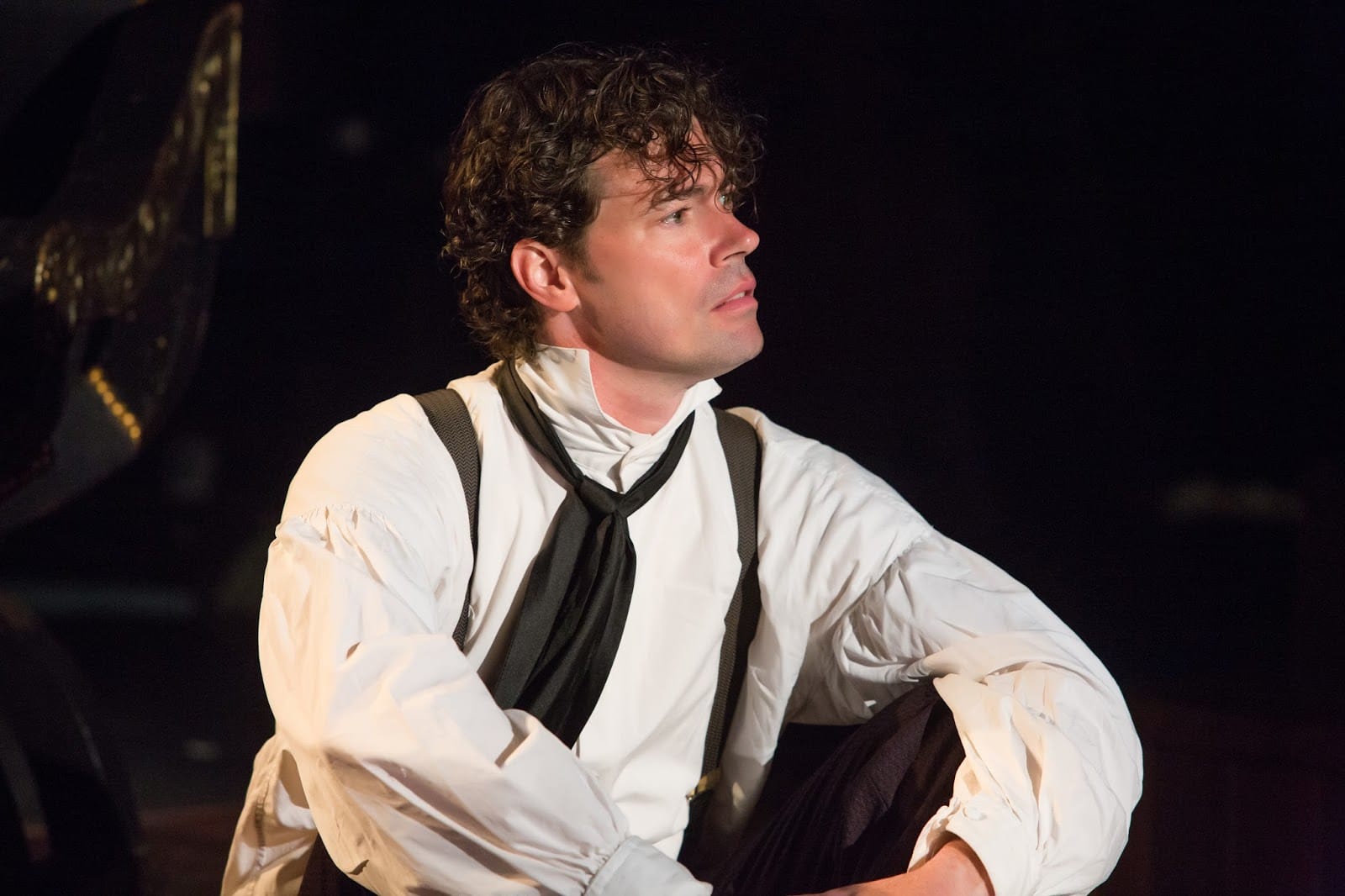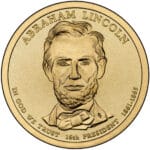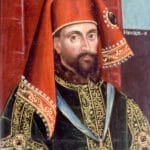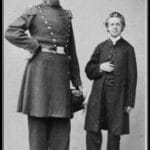The Tragic Genius of American Theater
Edwin Booth’s name is forever intertwined with that of his brother, John Wilkes Booth, the man who assassinated President Lincoln. However, to define Edwin solely as “the assassin’s brother” is a disservice to a man widely regarded as America’s foremost Shakespearean actor of the 19th century. This is the story of how Edwin Booth emerged from that tragic shadow to establish his own legacy as a titan of the American stage.
Born into a family steeped in theatrical tradition – his father, Junius Brutus Booth, was a star himself – Edwin’s affinity for the stage was almost predestined. He was a mere teenager, barely sixteen, when he made his debut. It wasn’t long before he was captivating audiences with his commanding performances, particularly in Shakespearean tragedies like Hamlet and Othello.
Edwin’s acting transcended mere recitation; he embodied the characters he portrayed, infusing every word and gesture with raw emotion. Audiences were captivated by the depth of feeling in his voice, the way he conveyed a universe of heartbreak with a single look. His fame exploded, turning him into a national sensation. He toured the country, bringing Shakespeare to life for countless Americans, and solidifying his place as a legend of the stage. Even across the ocean, in Europe, audiences recognized his talent, showering him with the kind of acclaim reserved for the truly gifted.
Not content with simply performing, Edwin possessed a vision for the future of American theater. He yearned for a space where art could thrive, a place where innovation and creativity were celebrated. In 1869, that dream materialized. He built his own theater in New York City – Booth’s Theatre – a dazzling monument to his passion. This wasn’t just any theater; it was a technological marvel for its time, outfitted with the latest stage machinery and designed to elevate the entire theatrical experience.
But just as Edwin was reaching the pinnacle of his success, tragedy struck. His own brother, John Wilkes, committed an unthinkable act, plunging the nation into mourning. The assassination of President Lincoln sent shockwaves through America, and Edwin, forever bound to his brother’s crime, found himself swept up in the maelstrom.
The public was reeling, and many struggled to separate the actor from his brother’s actions. Edwin, devastated and facing a storm of backlash, withdrew from the stage, his career seemingly in ruins. It would have been easy, understandable even, for him to remain in seclusion, to allow the weight of his brother’s actions to crush his spirit.
But Edwin Booth was not a man easily broken.
Driven by a profound love for his craft and a burning desire to reclaim his name, he eventually returned to the stage. He poured his grief, his anger, and his own personal turmoil into his performances, his talent shining through the darkness. Audiences, once again, were captivated. He wasn’t just Edwin Booth, the assassin’s brother; he was Edwin Booth, the gifted artist, the master of his craft.
Edwin’s impact on American theater, however, extended far beyond his own extraordinary talent. He understood the importance of community, the need for artists to support and inspire one another. Thus, he founded The Players Club, a haven where actors could gather, share stories, and forge lasting connections. It was a testament to his belief in the power of art and the importance of fostering a supportive community.
Even today, long after his final curtain call, Edwin Booth’s influence can be felt in the world of theater. He serves as a reminder that even amidst unimaginable tragedy, even when burdened by the weight of a family name tarnished by infamy, the human spirit, driven by passion and purpose, can find a way to shine. He was a true innovator, a visionary who helped shape American theater into what it is today. His story is a testament to the enduring power of art to heal, inspire, and ultimately, to transcend even the darkest of shadows.
What Was Edwin Booth Most Known For?
Edwin Booth, a star of the stage in the 1800s, wasn’t simply an actor – he was the American tragedian of his time. Imagine a packed theater, hushed and captivated as Booth, embodying the turmoil of Hamlet, held them spellbound. That was his magic – the power to make Shakespeare’s words come alive with raw emotion. He didn’t just act, he became the character, and people flocked to witness it, especially his Hamlet, which he famously performed for 100 consecutive nights!
But Booth wasn’t content with just performing. He desired to elevate the entire American theater scene. So, he did something extraordinary: he built Booth’s Theatre. Now, this wasn’t your average playhouse. It was a technological marvel, way ahead of its time, showcasing Booth’s dedication to pushing the boundaries of stagecraft. As if that wasn’t enough, he established The Players Club – a place where actors could connect, collaborate, and support each other. Talk about a true champion of the arts!
However, Booth’s life, much like a classic tragedy, took a dark turn. His own brother, John Wilkes Booth, committed an act that shocked the nation: the assassination of President Lincoln. The weight of this event could have crushed anyone, especially with the public backlash that followed. Yet, Booth, showing immense strength and resilience, returned to the stage. He poured his grief, his anger, his turmoil into his performances, proving the incredible power of art to heal and transform even in the face of unimaginable hardship.
Edwin Booth’s story is complex. He was a brilliant artist who lived through a deeply personal tragedy. While his brother’s act cast a long shadow, Edwin Booth’s own legacy as a theatrical genius, a pioneer, and a survivor continues to inspire and fascinate.
Edwin Booth and John Wilkes Booth: A Complex Relationship
Edwin Booth’s feelings about his brother John Wilkes Booth were far from simple. While historical accounts suggest a strained relationship even before the assassination, the event undoubtedly magnified the complexity. While he loved John, after the assassination of President Lincoln, Edwin also condemned his actions and wanted nothing more to do with him. He believed that what John did was not just wrong, but a deep betrayal of their family and their country. He refused to even say John’s name and distanced himself from his brother as much as possible.
Even though Edwin condemned the assassination, the tragedy deeply affected him. The Booth family name was tarnished, and for months, Edwin couldn’t bring himself to perform on stage. Most likely, he struggled to reconcile the love he had for his brother with the hatred he had for his actions – a heartbreaking dilemma with no easy answers.
Did Edwin Booth Save Robert Todd Lincoln?
Adding another layer of complexity to the story is the account of Edwin Booth saving the life of Robert Todd Lincoln, President Lincoln’s son. Picture this: a bustling train platform, crowds jostling for space, and a young Robert Todd Lincoln positioned precariously close to the edge. Suddenly, a strong hand reaches out and pulls him back just as a train roars past. The rescuer? None other than Edwin Booth.
The incident itself is remarkable enough, but the timing adds another layer of complexity. It makes you wonder about the strange hand of fate at play. What if Edwin hadn’t been there? Would Robert Todd Lincoln have met an untimely end months before his father’s assassination? It’s impossible to say for sure, but it highlights the fragility of life and the unforeseen ripple effects of seemingly small actions.
Edwin Booth might have felt conflicted, to say the least. Imagine carrying the weight of saving the President’s son while knowing your own brother would later commit such a heinous act. It’s enough to make anyone question fate and the strange turns it can take.
While the full extent of Edwin Booth’s emotions remains unknown, this event offers a glimpse into the complexities of the human experience, especially when entangled with such historical significance. This story isn’t just about a near-miss on a train platform, it’s about the intertwined lives of two families forever linked by tragedy and a peculiar twist of fate.
You want to discover one of the most iconic images of the 20th century? Check out these David Bowie pictures. You haven’t seen enough of Albert Einstein? Well, prepare yourself to see his most famous picture ever Einstein tongue. Still haven’t had enough? Read some of David Bowie’s most inspirational David Bowie quotes.
- China II Review: Delicious Food & Speedy Service - April 17, 2025
- Understand Virginia’s Flag: History & Debate - April 17, 2025
- Explore Long Island’s Map: Unique Regions & Insights - April 17, 2025
















